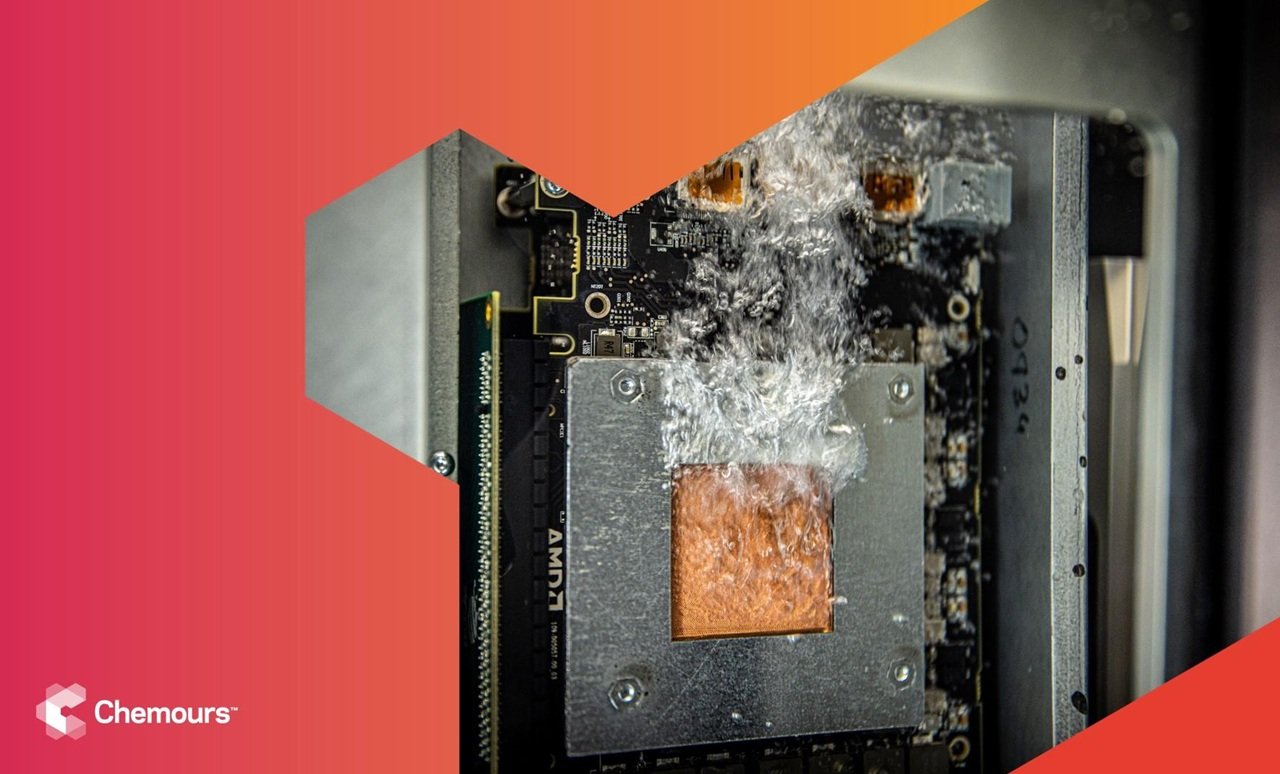Agreement supports 2026 launch of two-phase immersion fluid for AI-era data centers.
The Chemours Company has signed a strategic manufacturing agreement with Navin Fluorine International Limited to produce its Opteon two-phase immersion cooling fluid, a key component in Chemours' expanding Liquid Cooling Venture. The partnership aims to enable large-scale adoption of immersion cooling for data centers facing growing heat and power loads from AI and next-generation chips, with initial manufacturing capacity expected by 2026.
Chemours’ Opteon fluid is designed for high-performance, two-phase immersion cooling systems. The fluid offers ultra-low global warming potential (GWP 10), a power usage effectiveness (PUE) approaching 1, and can reduce cooling-related energy consumption by up to 90%. According to Chemours, it nearly eliminates water use, cuts space requirements by 60%, and lowers total energy consumption by up to 40%.
The agreement with Navin Fluorine is positioned to accelerate commercialization of the technology and meet market demand quickly. The product supports emerging cooling needs in hyperscale and high-density data centers, while also helping operators reduce total cost of ownership.
“The fact is, next generation chips alone can’t deliver the AI boom; the computing and resource demands created by this technology requires a new, integrated approach. Our deep expertise in cooling uniquely positions us to help bridge this gap,” said Denise Dignam, Chemours President and CEO. “Partnering with Navin Fluorine enables us to meet this critical market need.”
Navin Fluorine will manufacture the fluid as part of its broader push into high-growth specialty chemicals. “Joining forces with Chemours to manufacture their new liquid cooling technology advances our mission to produce high-quality, innovative, and sustainable products… while helping address a key industry challenge for data centers,” said Vishad Mafatlal, Executive Chairman of Navin Fluorine.
The Opteon cooling fluid is a cornerstone of Chemours’ broader thermal management strategy, which includes both direct-to-chip and immersion cooling solutions under its Liquid Cooling Venture platform.
